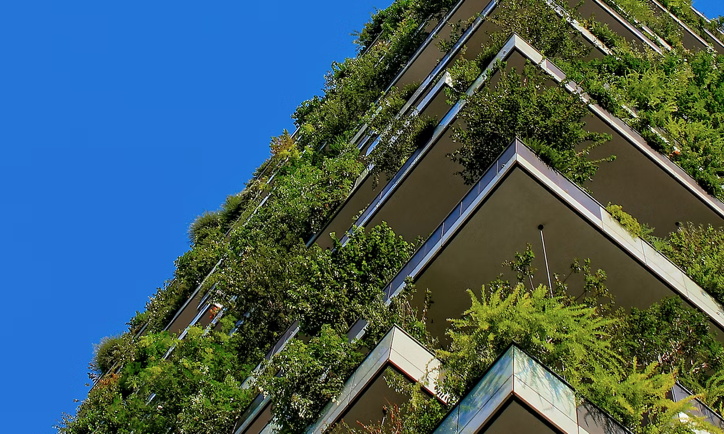Green agreements are helping owners and operators align on sustainability goals

Hotel operators and investors are increasingly collaborating to accomplish shared green goals, a sign of growing interest in meeting environmental, social, and governance (ESG) commitments.
Take luxury resort group Six Senses and its parent company InterContinental Hotels Group. Each Six Senses property embeds sustainability commitments, such as the adoption of green building standards, the allocation of funds toward local community and environmental initiatives, and even the appointment of in-house sustainability professionals.
“ESG is quickly gaining significance as an investment and performance metric for hotel owners and broader stakeholders to align on,” says YouRee Park, Senior Associate, Hotels Sustainability Lead, Asia Pacific, JLL Hotels & Hospitality Group. “More hotel operators, from international chains to regional operators across different segments, are making carbon reduction commitments, disclosing their progress on climate-related metrics, adopting greener brands and technical standards, and setting guidelines on sustainable practices.”
In most industries, organizations and investors are under pressure to commit to sustainability goals that not only generate cost savings and performance enhancements, but also frequently lead to a greater longer-term valuation of their assets.
For the hotel industry, the common ground is being sought through hotel management agreements, or HMAs, which traditionally only included incentives tied to financial performance.
Now, these green HMAs are increasingly seen as a vital tool for hotel owners and operators to hold each other accountable to ESG targets, Park says.
Setting targets
Globally, the lack of a standardized framework for ESG practices in the hotels sector beyond science-based target initiatives is one of the key factors stalling progress on the adoption of green HMAs.
“Luxury resorts and nature retreats have generally led the way on embedding sustainability in their operating culture and performance metrics, with owners and operators in this segment seeing it as being fundamental to their concepts and experience,” says Xander Nijnens, Senior Managing Director, Head of Hotel Advisory & Asset Management, JLL Hotels & Hospitality Group.
To be sure, it’s still early days for the widespread adoption of ESG metrics in HMAs, with vast differences across countries and regions on sustainability focus and regulation.
“In Europe, for instance, the impetus to adopt green HMAs comes from institutional and corporate investors with net-zero goals who are willing to fork out a premium for greener assets,” says Nijnens.
“Conversely, in Asia, hotel operators are often the ones taking the lead on ESG because hotel owners, predominantly private investors, have tended to prioritize efficiency and profitability,” he says.
In the built environment outside of the hotels sector, there are clear ESG regulations and criteria to work toward. For instance, the commercial office sector has been setting the pace, with 42% of occupiers and large developers across Asia Pacific adopting green leases last year, JLL data shows.
This gap between the sustainability commitment in both sectors stems from the different demand patterns from the end-user, he says.
“When comparing a short hotel stay to a five-year lease, the latter represents a more significant cost to the business,” says Nijnens. “This means that decision makers will be more diligent about their choices and will be more inclined to pick a green asset as compared to a hotel guest.”
But even with the right standards in place, owners and operators could still face challenges in measuring sustainability performance. The process involves setting and agreeing on asset-specific targets that typically entail capital expenditure (CapEx) and operating expenses (OpEx).
“It’s tough for an owner to set energy consumption targets across all their properties because the starting point of every asset is different,” says Nijnens. “For instance, the contrast in efficiency of operations between a new build and a 30-year-old property is like night and day.”
A common goal
One successful example highlighted in JLL’s research is the HMA signed between Australian investment manager Salter Brothers and hotels giant Accor to manage a portfolio of 11 hotels in Australia.
The agreement incorporates clear, defined ESG targets, including green energy procurement, waste reduction, and staff diversity, all of which are tied to tangible commercial outcomes.
Without a unified global standard on ESG for the hotels sector, HMAs remain the best option for owners and operators to agree and commit on sustainability targets, Park says.
Hotels, which operate around the clock, have the highest energy intensity at 293 kWh/sqm compared to sectors such as office (181 kWh/sqm), retail (152 kWh/sqm) and residential (124 kWh/sqm), according to Global Real Estate Sustainability Benchmark (GRESB) data.
Yet there are few investors in Asia acting on the environmental and social aspects of sustainability on a larger scale, with most focused on meeting compliance standards, according to Nijnens.
“Industry reporting standards, such as the Uniform System of Accounts for the Lodging Industry (USALI), are evolving in the next two years to incorporate sustainability-focused metrics,” says Nijnens. “The transparency and urgency will increase, giving owners a real opportunity to align with their operators before the pressure mounts.”
